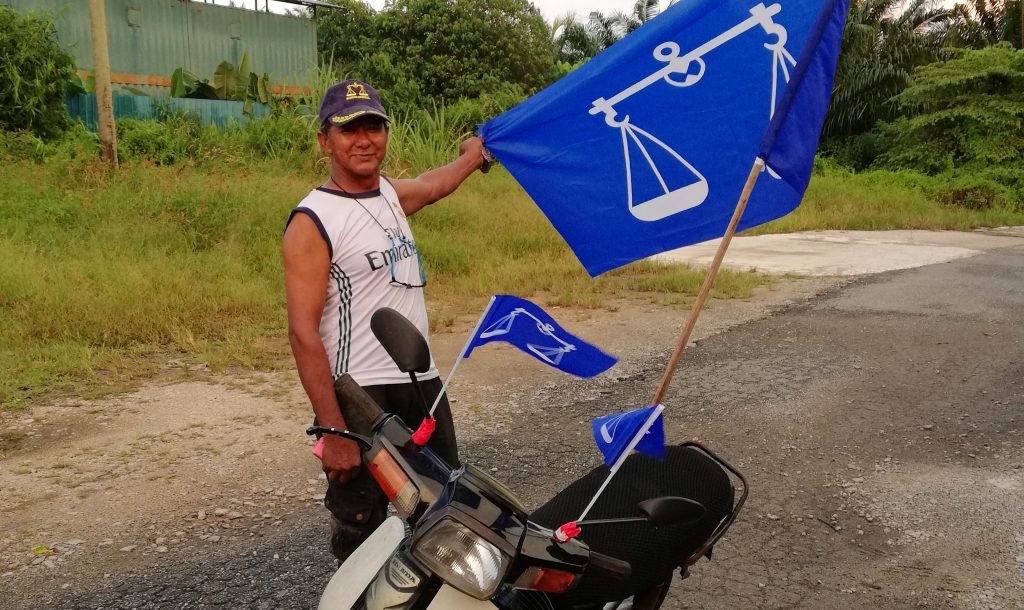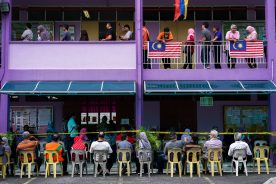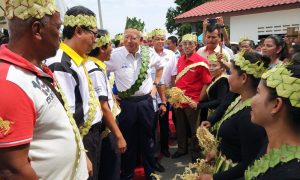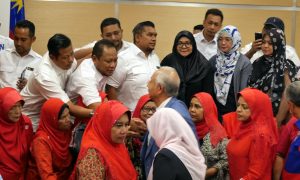Editor’s note: this article is based on the author’s presentation at the 2018 ANU Malaysia Update, held in Canberra on 11–12 October 2018. Watch Liew Chin Tong’s lecture on the ‘game changers’ in Pakatan Harapan’s victory and a discussion on political reform with Wan Saiful Wan Jan and Zainah Anwar.
Almost six months since the Pakatan Harapan coalition won the 14th Malaysian general elections (GE14), urban voters have lurched between the ecstasy of victory, expectations of the impossible, and measured assessments of the outcomes. While there have been numerous stutters and stumbles, the overall view in the city centres remains one of dogged faith of a better tomorrow for Malaysia.
But in the rural outskirts, where Malay voters traditionally supported the UMNO-dominated Barisan Nasional (BN) alliance, reactions to the wholly unexpected GE14 results were far removed from those of urban reformists and euphoric supporters of the new regime.
Analyses of the rural electorate prior to the elections (including my own) noted concerns with daily costs of living, despair at the Goods and Services Tax (GST) and the loss of petrol and other subsidies, as well as disgust at the arrogant extravagance of the upper echelons of political society. Unlike their urban counterparts, these voters were only concerned with their lived experiences: the difficulties they faced in putting food on the table, making ends meet, and maximising the ever-decreasing value of their Ringgit in hand.
According to such analyses, allegations of corruption à la 1MDB irked rural voters less than the frustrations of a lack of access to patronage, in the form of the lucrative projects which were controlled tightly by middling levels of authority such as village heads and association leaders. While politicians’ shameless demonstrations of wealth rankled, such behaviour was not unexpected, as many rural Malay poor accept their position at the bottom of the social hierarchy.
But when it came to predicting how the rural communities I spent time in would end up voting, I was wrong. The glaring injustice of their suffering in the face of the excesses of those in power, and expectations of further deterioration in their livelihoods, pushed many to vote against the UMNO leadership.
The shy Pakatan voter?
My conversations with people in rural Johor post-GE14 have indicated that some had harboured secret plans to vote for the opposition even as they went through the motions of decking out their villages and neighbours in BN blue. Others made a last minute decision as they walked up to and stood at the ballot box, egged on by the realisation that others had suddenly confessed to voting against the generational practice of unwavering support for UMNO and BN. Some who were uncertain were galled by the disrespect shown against the elder statesman Mahathir Mohamad, even though they themselves were not his fans per se. Malay adat (cultural traditions) of respect for elders and social etiquette overcame political loyalties.
And yet the results of GE14 were still as much a shock to these voters as to the pundits. Even as they voted for the then opposition, they never expected the entire government to fall—especially in Johor, the proud birthplace of UMNO.
Regret and despair were immediate. Even before the dawn of the “morning after”, I was privy to comments of: “oh no, what have I done”, and: “there was nothing actually wrong with BN—it was just Najib”. More painful were the fears of even further hardship under the new regime, deemed to have little interest in the rural poor. “Who’s going to help us now?” was a common refrain.
The disconnect between the rural poor and urban reformist centres is stark. After I awoke to news of overnight celebrations in Kuala Lumpur, I returned to the fishing villages of western Johor, to men gathered in stunned silence. Some whispered strategies to align themselves to the new regime and the expected gravy train of patronage from new masters; they did not know of any other way to function. Others despaired that the new “Chinese government” would wipe the Malays and Islam from Malaysia.
As the new government began to take steps to demonstrate more inclusive approaches to governance, the latter set of fears took a greater stranglehold on rural folks. In eastern Johor—where the FELDA elders I knew deemed any news on 1MDB as fake—photos sent around on WhatsApp of branded bags stuffed with cash and jewellery confiscated from former Prime Minister Najib Razak’s home were quickly followed by claims questioning their authenticity. False organisation charts of a largely non-Malay cabinet quickly followed, made all the more convincing by public announcements of the appointment of non-Malay-Muslims to the posts of Attorney-General, Chief Justice and Minister of Finance.
The UMNO cybertroopers did not take a back seat post-defeat but instead escalated their racist diatribes. UMNO branch members speaking with friends and family at coffeeshops repeated stories of anti-Malay or anti-Islamic behaviour or “attacks”, openly inciting people to shed blood so that the new government would quickly fall. (I was present during these conversations.) Indignation at actions said to disrespect Islam was quick to spread through videos made viral on social media or WhatsApp. UMNO stalwarts firmly believed that the new regime would not last, and that their return to power was just a matter of time.
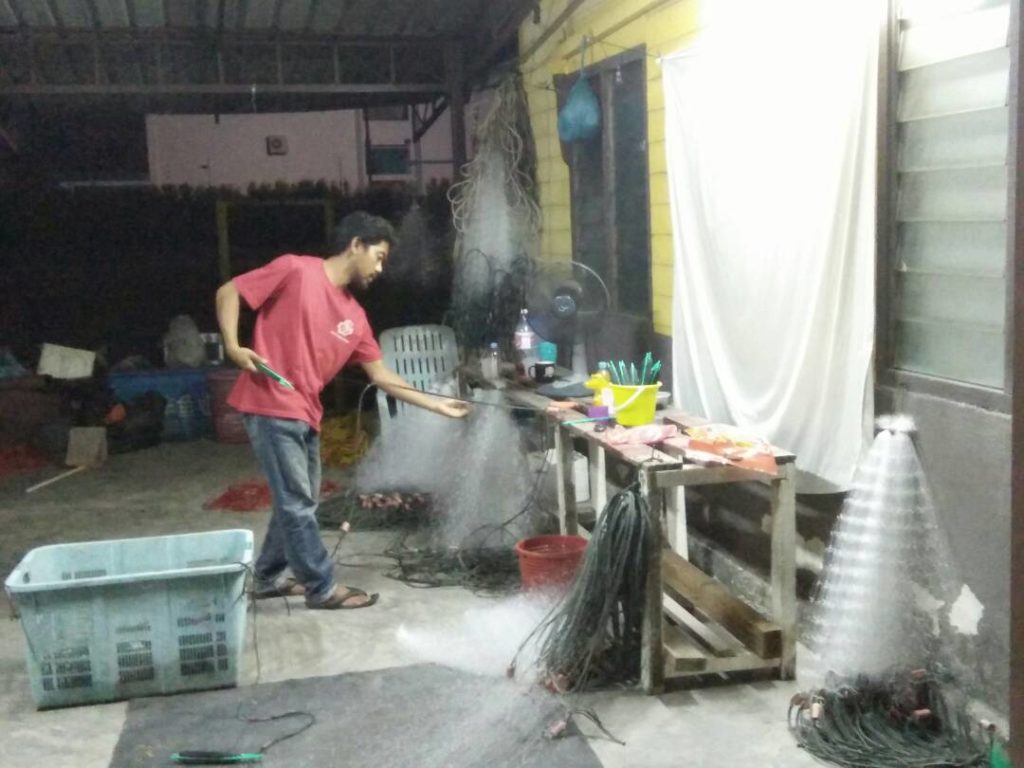
Serina Rahman
Political intrigue and disruption of patronage
As the dust settled and the new government crossed the 100-day mark, more measured and seemingly level-headed comments circulated on the failure of the new government to meet their promises. By this time, the GST had been zero-rated, and while petrol subsidies had not been reinstated, the price of RON95 petrol was fixed and not subject to global fluctuations. Before the onset of the Sales and Services Tax (SST), this seemed to be a slightly more positive window.
Since then a number of things have happened. Post-election analyses have indicated that unlike heady declarations in the immediate aftermath of GE14, Malay voters overall did not actually vote beyond their ethnic and religious boxes. Instead, while the non-Malay vote swung almost completely to the new regime, the Malays spread their support between the PAS and UMNO, with a number in the south accepting pro-Pakatan Harapan PAS offshoot Amanah and others in Kedah, for example, opting for Mahathir’s explicitly Malay-based Bersatu.
At the same time, questions escalated about the relationship between Anwar Ibrahim and Mahathir Mohamad, and the possibility that Mahathir might backtrack on his gentleman’s agreement to install Anwar as the next prime minister. As public declarations of loyalty and commitment between the two were expressed, news of internal conflict in PKR emerged, coupled with rumours that Anwar was negotiating with UMNO, and that PAS and UMNO were just a few steps away from an official declaration of collusion.
But in the rural outskirts, people pay little heed to political positioning and policy debates. Many do not understand political processes and do not really care to know the wider implications of national policy discussions or political action. Most are only concerned with whether there is any improvement to their lives.
At this stage, there was none.
While urban centres were alight with political debates and discussions about more progressive and transparent governance, Malay voters in the hinterland continued to question the new government’s interest in their welfare. People asked why it was taking so long to put away Najib Razak and his wife Rosmah Mansor if there was so much evidence against them. They began to believe in the bravado of Najib and the new UMNO president Zahid Hamidi, and the counter-narratives circulating on social media that perhaps there was no concrete evidence of 1MDB-related crimes.
New daily burdens were added to their lives through the new government’s clampdown on UMNO funds. With no money to be disbursed for political gain, those who depended on it for their survival suffered even more. This was deepened when the SST took effect. Former village leaders quietly moved to isolate appointees from the new regime, making it seem like things could only get done through their network and making new heads irrelevant. When the former representatives were unable to accomplish what they promised (as they had lost the actual authority to do so), the blame was neatly placed on the “incompetence” of the new government.
In Johor, the new Pakatan Harapan state government confronted similar challenges. Even as public announcements were made on changes to state administration—with new benefits made available to the poor—these were met with incredulity. Campaign promises to FELDA settlers are yet unfulfilled, and the Malay poor outside of FELDA settlements have little means or understanding of how to access new offerings from the government. Instead, they hear of job losses among civil servants, increases in cigarette prices, clampdowns on the sale of smuggled cigarettes (cheaper, untaxed versions of the product many rural people are still addicted to), and an upcoming ban on smoking in open spaces; all adding to the perception that they are being unfairly targeted.
Even more recently, fishermen ferrying passengers to tourism locations for supplementary incomes have been arrested and fined by the marine police, while others fishing without official licences have also been stopped and questioned. To these rural people, the need for order, the “rule of law”, regulation and security mean less than their ability to earn money to survive. With financial assistance through former political channels cut off, clamping down on these previously undisturbed ways of adding to household incomes add to their struggles and negative views of the new regime.
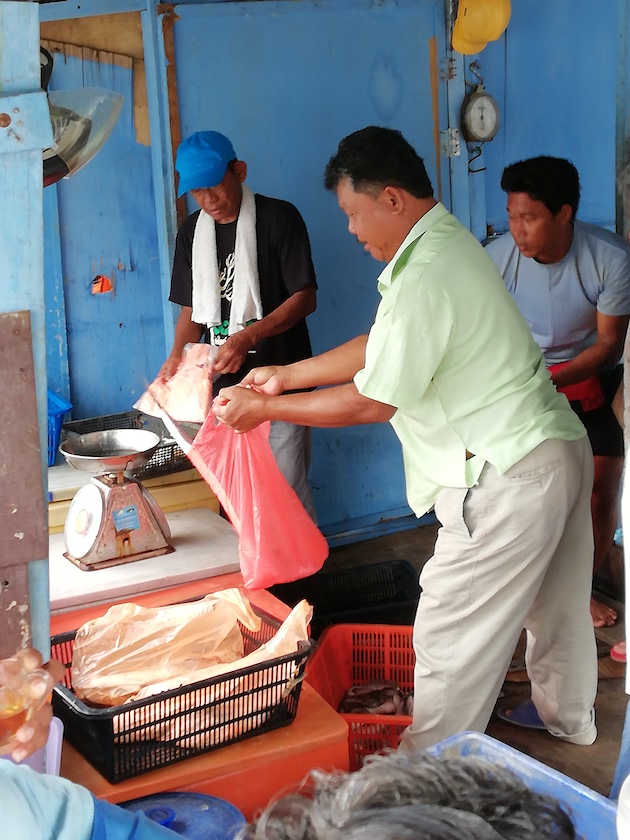
Serina Rahman
Listening to the hinterland
Where can this disgruntlement go? I have seen that instead of embracing a new and openly inclusive Malaysia (notwithstanding constitutional statutes on the special position of Malays and Islam), the rural Malay poor are regressing deeper into ethno-religious boxes. In a bid to shore up rural Malay support and to counter Mahathir’s comments about “the lazy Malay”, Anwar himself has been reported to desire a greater emphasis on Malay rights. He has returned to open calls for Malay exclusivity and publicly demonstrated his allegiance to the royal institutions. While PAS maintains its uncompromisingly conservative Islamic stance, individuals in the new government flip-flop on religious issues, playing to the gallery and opting for “safe” religious proclamations to safeguard and nurture wider Malay-Muslim support.
When fears are played up and perceived injustices highlighted, it is easy for ethno-religious chasms to fester extreme thought. In rural areas where alternative or more moderate religious voices are scorned as “liberal”, efforts at inclusivity are tarred with declarations of disloyalty to creed and deviance from Islamic faith.
A new electoral system for a new Malaysia
The majoritarian first-past-the-post system has had its day. It’s time to think about bold options for reform.
The picture I draw here may seem to be the polar opposite of the hope that still bubbles in urban centres post GE14. But the reality on rural Malay grounds is harsh. These voters just want to see that they get some kind of assistance, that their lives improve, and that they too can access the benefits marketed by the new government. As these continue to be seemingly out of their reach, the extent of the schisms that can grow out of fear and despair vary. At is mildest it can continue to just be the need to “look after our own kind” (jaga orang Melayu kita), or it could swing to much further extremes of hate and radical action.
The new Pakatan Harapan government needs to be seen to genuinely engage with people on the fringes to prove that they have not been forgotten. While the recently released budget details numerous benefits to the “bottom 40% percent” (B40), without concrete improvements to their livelihoods and visible change to conditions on the ground, these plans remain mere rhetoric. For in these far-flung rural edges of Peninsular Malaysia, there is little harapan (hope) left.
 Facebook
Facebook  Twitter
Twitter  Soundcloud
Soundcloud  Youtube
Youtube  Rss
Rss 